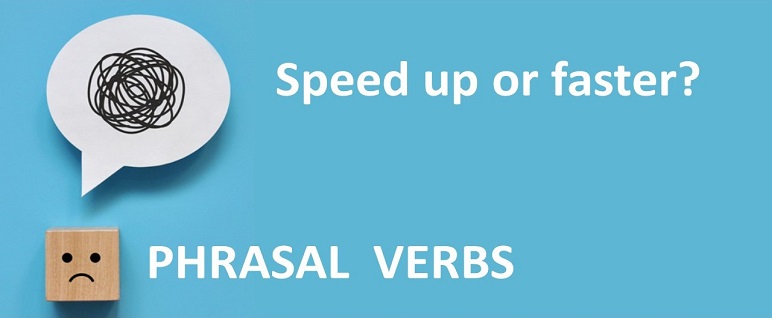

Language is a complex and ever-evolving entity. English too has its own idiosyncrasies. One such language phenomenon that perplexes the non-native English speakers is phrasal verbs. So, let’s explore this today and delve into the deep and mysterious world of Phrasal verbs in the English language.
At the outset, we must understand what are phrasal verbs?
Phrasal verbs are a group of words that function as a verb and are made up of a verb plus a preposition, an adverb, or both.
Prima facie, phrasal verbs look deceptively simple. The student might be aware of the verb meaning or the particle individually but might get confused with the different combinations that often come up during reading newspaper articles or a piece of literature.
For instance, let’s look at the phrasal verb ‘bounce off (someone)’.
If taken literally, the idea can appear to be appalling and scandalising. However, as a phrasal verb, ‘bounce off someone’ means ‘share your ideas with someone to get his/her reaction’.
“I have a few ideas for our electoral campaign. May I bounce them off you?”
Now if we retain the verb ‘bounce’ but change the particle/preposition to ‘back’ it will become ‘bounce back’ which means ‘to return to health or return to a good condition after an illness, injury, or difficulty’.
“David injured his leg in the last match. His fans hope that he will recover and bounce back soon.”
On the same lines, the verb ‘come’ can be clubbed with at least fifteen prepositions, each having a different meaning and many having more than one meaning at the same time. Let’s take a look at some of them:
Phrasal Verb ‘Come’ Meaning
Come about:
When something happens or occurs.
Come across:
1. The way other people perceive something or someone.
2. To find or see someone or something by chance.
3. To move from one side to the opposite side.
Come apart:
When something breaks or separates piece by piece.
Come back:
To return to a place
Come down:
1. To move from a higher to a lower position or from north to south
2. To lower the price.
Come down to:
When a situation is reduced to a certain outcome
Come down with:
When you start to experience the symptoms of a disease or illness.
Come in:
1. When someone or something enters a place, building, or room
2. When something or someone arrives from somewhere.
3. When it is something received by someone, like a message, news, or money
4. To go to class or work.
5. It is used in referring to someone who comes to your house to do work.
6. Ranking in a competition or race
Come off:
1. When something is removed or breaks off from where it was originally attached to
2. Used when talking about the results of an event or competition.
3. When you want to tell people you don’t believe what they’re saying.
4. How someone is perceived by other people.
Come on:
1. To appear on television or be heard on the radio
2. When you encourage someone to do something.
3. The start of an illness.
4. When something starts to function.
There is no denying that once students get to know the tango that verb and preposition play within the idiomatic framework, things get tricky. However, there are plenty of ways in which the students can learn and retain phrasal verbs effectively.
Students can acquire a deep understanding of phrasal verbs by examining their usage within sentences, and committing unfamiliar ones to memory. They can also employ mnemonic devices such as vivid imagery and narratives to aid in remembering various meanings. Organising them into categories based on their particles, such as ‘up’, ‘of’, ‘in’, and ‘away’ could prove helpful". Additionally, they can also group them by thematic topics, including relationships and functionality, to enhance their comprehension and retention.
In conclusion, the world of phrasal verbs is indeed mysterious, but it is a puzzle well worth solving for anyone seeking mastery of the English language.

